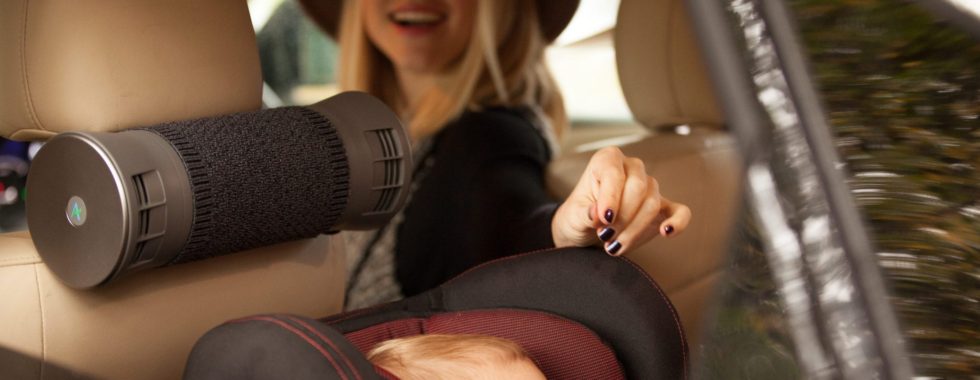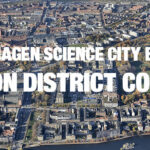Clean air company launches product to protect car passengers
The first technology to effectively remove noxious fumes from the passenger compartments of cars is launched today. It is set to transform the lives of children and other groups vulnerable to air pollution.
Radically improving air quality inside cars
The Copenhagen Science City-company Airlabs has developed a product, the Airbubbl, which can radically improve the air quality inside cars. The Airbubbl product removes over 95% of the NO2 that passes through it, using Airlabs’ proprietary re-engineered nano carbon technology. This was found in product trials in collaboration with the University of Copenhagen.They are now trying to persuade car manufacturers to build the technology into their vehicles to combat the high levels of Nitrogen Dioxide (NO2), primarily from diesel emissions, finding its way into vehicles. For car owners who want immediate protection, Airlabs is launching a kickstarter campaign to bring the product to market by early 2018.
Independent research shows 81 percent pollution reduction
In a recent trial in central London on some of the UK’s most polluted streets, the independent analysis company Enviro Technology Service found that the Airbubbl reduced NO2 concentrations inside the vehicle by up to 70% with the ventilation turned on and up to 81% with the ventilation turned off entirely. In a timeframe of 10 minutes the Airbubbl reduced NO2 concentrations by over 95%.
Driving could cause permanent lung damage
Professor Sir David King, chief scientific advisor to the UK government and honorary science adviser for the British Lung Foundation, warns that people spend an average 1.5 hours a day in their cars exposed to traffic fumes and children are particularly vulnerable, risking permanent lung damage.
“What many drivers probably don’t realise is these fumes can be just as high in the car as outside, and in some cases even higher. Children sitting in the back seat are likely to be exposed to dangerous levels. You may be driving a cleaner vehicle but still be collecting toxic gases from all the vehicles around you.”
Sceptical scientist convinced
Air pollution from NO2 and particulates cause an estimated 40,000 premature deaths each year in the UK. Although built-in car air filters help trap particulates they do not remove gases, and studies have found that NO2 levels primarily from diesel emissions, inside vehicles can be worse than those on the road outside.
Duncan Mounsor, Managing Director of Enviro Technology Services, which conducted the trial, said:
“As a scientist, I’m sceptical about the claims of air-cleaning devices but the Airbubbl really works, and I’m not aware of anything like it on the market. Air pollution is as serious a public health issue as passive smoking and obesity, and if I had to spend many hours a day driving in the city, I would want an Airbubbl with me.”
Kickstarter campaign to speed up market access
The Airbubbl fastens behind the driver’s headrest and plugs into the car’s cigarette lighter. It sucks in polluted air, traps NO2 on a re-engineered nano carbon filter, removes particulates, and directs clean air at head height to the driver and passengers using optimised airflow.
The new product will be available to pre-order on Kickstarter from 8th November 2017 at £199 with early bird prices starting at £99. Products will be delivered in March 2018 when it will be available to the public at £295.
Based on fundamental research in atmospheric chemistry
Airlabs is housed with the Copenhagen Science City partner Copenhagen Bio Science Park. The company initially grew out of research conducted at the University of Copenhagen Department of Atmospheric Chemistry. It specialises in developing technology that improves air quality, and is staffed by airflow engineers and atmospheric chemists. CEO Sophie Power said: “Air pollution affects the health of millions of people worldwide and is a big worry for many parents. We have developed the Airbubbl because there is currently no way to effectively remove NO2 inside your car and protect your children.”
“We are now talking to car manufacturers about building our technology into their vehicles. This should be the standard to protect the health of drivers in polluted towns and cities.”




